#devarim
Text
היה חזק ואמץ, אל תירא ואל תרעד מהם, כי ה' אלוקיך ההולך איתך. הוא לא יכשיל אותך או ינטוש אותך.
Be strong and courageous, do not be afraid or tremble at them, for the LORD your God is the one who goes with you. He will not fail you or forsake you.
- Devarim 31:6
24 notes
·
View notes
Text
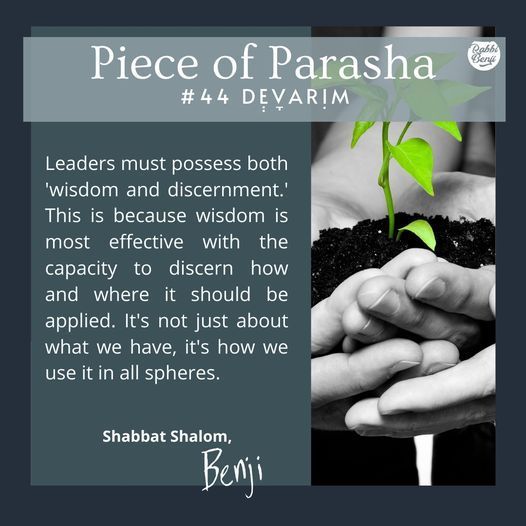
Rabbi Benji
What's the difference between 'wisdom' and 'discernment'? Find out in this week's #PieceofParasha on Devarim. For some further thoughts of this week's parasha, check out: Here
10 notes
·
View notes
Text
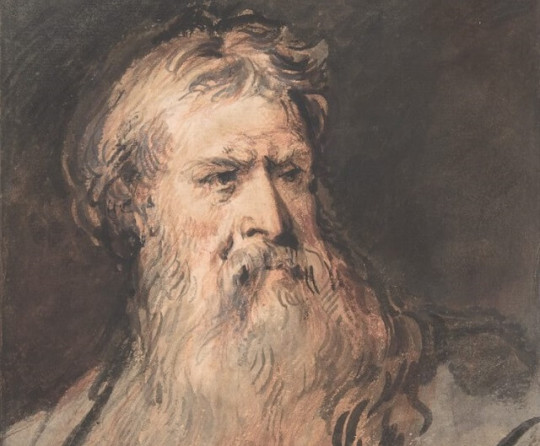
DON’T REMIND ME
These are the words that Moses addressed to all Israel on the other side of the Jordan.--Through the wilderness, in the Arabah near Suph, between Paran and Tophel, Laban, Hazeroth, and Di-zahab….
- Deut. 1:1
In this week’s Torah reading we begin the Book of Deuteronomy (Devarim), Moses’ final speech to the Israelites in the last five weeks of his life. The man who once described himself as “slow of speech and slow of tongue” (Ex. 4:10) now has a great deal to say. Moses rebukes the people for their lack of faith and repeated misbehavior in the wilderness, and recounts events that occurred and laws that were given during their forty-year journey.
Moses begins his epic lecture by mentioning certain places where the Israelites provoked God to anger. Rashi explains that Moses simply mentions the place names and not the sins committed there “out of honor for the Children of Israel.” But isn’t Moses criticizing the people? How does he honor them at the same time? Rav Yosef Nendik explains that when a person lacks self-awareness and is oblivious to what he has done wrong, he needs a long explanation about why he is being reprimanded. For one who already understands his mistake, a simple hint is enough.
Imagine a family on a cross-country road trip. At Mt. Rushmore the children can’t stop bickering and their fed-up parents pack them back into the minivan. The kids realize their mistake and cry to return to the monument, but it's too late. Another time, these siblings start to bicker and their mother wants to remind them why it's a bad idea. She says simply, “Mt. Rushmore.” She doesn’t need to bring up the insults they traded, or the family’s missed opportunity to enjoy the national monument. The children know full well what they did wrong that day. It is to the Jewish people’s credit that we needed only a small allusion to our sins to understand why we were being rebuked.
Image: “Study for the figure of Moses” by Jacob de Wit, c. 1730
Accidental Talmudist
7 notes
·
View notes
Text
in tonight's torah study, we discuss again the travels, sins, and conquests of israel, as well as the details of a very big boy's bed
4 notes
·
View notes
Text
A poem based around this week's Torah portion D'varim ( Deuteronomy 1:1 - 3:22 )
Words swarm like stinging insects
Gracious as honey and painful
Through actions of blessings and curses.
We have forgotten our faith for comfort.
Why must we be in pain?
Surely we are hated unjustly.
We were pulled away to be lost.
"Does our journey mean nothing to you?
We have grown and changed
A perspective which we would have never
Thought of.
We were blessed to experience these changes.
Trials and hard ships are merely aspects
To this that we have learned.
We are now as one, joined for strength.
For compassion and for understanding."
Our Eternal turned aside
For we reflected grace in essence of
Doubt and bickering.
But the Eternal will always be there,
Watching and allowing us to return.
These words sting
Or maybe hopeful like honey.
A lesson we have learned, for
The wilderness belonged to even
Our hearts. Navigate — and learn yourself.
#judaism#torah portion#torah study#poem#words#d'varim#devarim#deuteronomy#faith#poetry#baruch hashem
1 note
·
View note
Text
7th portion-Parshah Devarim(english)

Shabbat Shalom everyone!. I share with you the latest verses of this week. Have a beautiful day of rest close to the Lord, Torah and your families!
7th Portion: Devarim(Deuteronomy) 3:15-22
Chapter 3
15And to Machir I gave Gilead.
16And to the Reubenites and to the Gadites I gave from Gilead to the brook of Arnon, the midst of the brook and the border, until the brook of Jabbok, which is the boundary of the children of Ammon,
17the plain, the Jordan and the border thereof, from Kinnereth to the sea of the plain the Sea of Salt, under the waterfalls of Pisgah, eastward.
18And I commanded you at that time saying, "The Lord, your God, has given you this land to possess it; pass over, armed, before your brothers, the children of Israel, all who are warriors.
19But your wives, your young children, and your cattle for I know that you have much cattle shall dwell in your cities which I have given you,
20until the Lord has given rest to your brothers, just as [He did] for you, and until they also possess the land which the Lord, your God, is giving them on the other side of the Jordan, then every man shall return to his possession, which I have given to you."
21And I commanded Joshua at that time, saying, "Your eyes have seen all that the Lord, your God, has done to these two kings. So will the Lord do to all the kingdoms through which you will pass.
22Do not fear them, for it is the Lord, your God, Who is fighting for you."
#parasha ha shavua#weekly parasha#welovetorah#jumblr#shabbat shalom#shabbos#keep shabbat#keeping commandments#parasha devarim#torah portion#torah lovers#thanks to the lord#have a nice weekend#familyday#resting day#enjoy shabbat#biblia#baruchhashem#enjoylife#simchat torah#jewish people#am israel jai#argentina#israel
2 notes
·
View notes
Text
Guardian Angels
Dale Pollard
The concept of angels and angelic beings filling the role of guardian is found several times throughout scripture. A cherubim with a flaming sword that flashed in every direction to guard the the way to the tree of life (Genesis 3.24). Jesus tells us that each child is assigned an angel and that angel is of such high rank that it can see the face of God (Matthew 18.10). While…

View On WordPress
#Bereshit Rabbah#Clement#Daniel#Darius#Devarim Rabbah#Guardian Angel#Herod#Koehler Rabbah#Michael#Origen#Peter#rabbinic#spiritual warfare
0 notes
Text
וכי היאך אפשר לו לאדם להיקרא בשמו של הקב"ה
and how is it possible for them -- for a human -- to be called by Their Name, the name of ha kadosh baruch hu?
אלא מה המקום נקרא רחום וחנון - אף אתה הוי רחום וחנון
only like this: as the Place is called merciful and gracious, you must be merciful and gracious
מה הקב"ה נקרא צדיק....אף אתה הוי צדיק
as ha kadosh baruch hu is called "tzaddik", you must be a tzaddik
הקב"ה נקרא חסיד...אף אתה הוי חסיד
ha kadosh baruch hu is called a hasid, so you must be a hasid
0 notes
Text
Zera Shimshon - Devarim
Zera Shimshon – Devarim
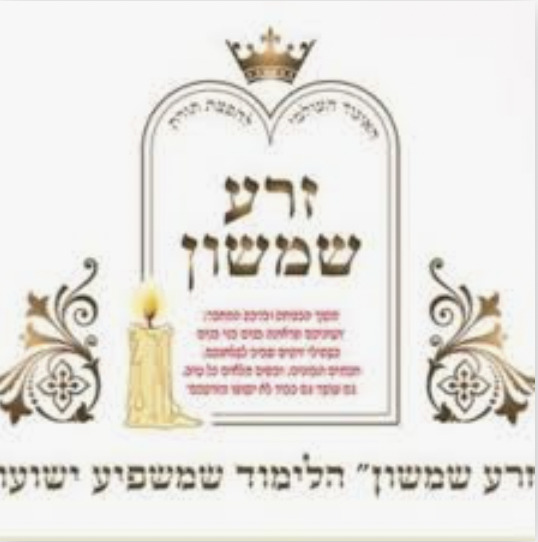
View On WordPress
0 notes
Text
Why is this year different from all other years?
On other years, we dance joyfully with the Torah. But this year, we are brought from Devarim to ein milim.
On other Shabbatot, we lock away our phones and tear the challah with our hands because cutting it with a knife is too violent for the peaceful sanctity of Shabbat. But these Shabbatot, we carry our phones for safety and some even carry weapons.
On other years, Chanukah is primarily about sacred oil and miracles. But this year, it is about war and the cost of Jewish survival.
On other years, Tu b'Shvat celebrates the new year for trees and environmentalism. But this year, we think about crops left unharvested by hands no longer living.
On other years, we celebrate Purim with costumes, candy, drinks, and the purimspiel. But this year, we ask ourselves about the nature of Haman and of self-defense.
On other years, we shout-sing Dayeinu with raucous cheer. But this year, we self-consciously skip the shefokh khamatkha and we wonder if the gentiles know that we spill wine drops from our glass because all human life has value.
This year, we ask ourselves the meaning of "divine" and "liberation."
#המצב#perhaps this will somehow be irrelevant by the time some of these come to pass#in fact b'ezrat Hashem they will be#however
430 notes
·
View notes
Photo

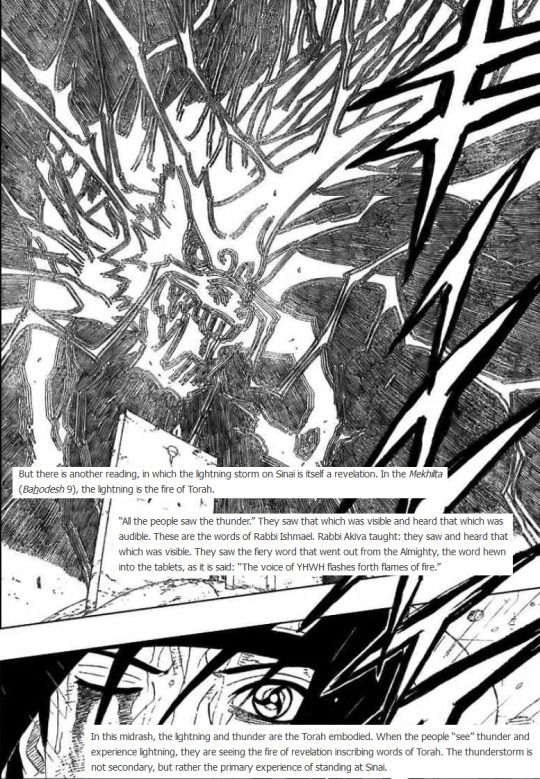
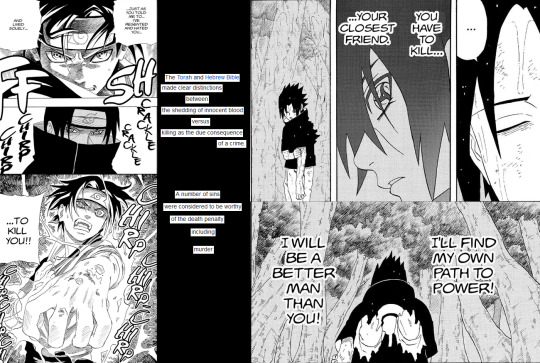
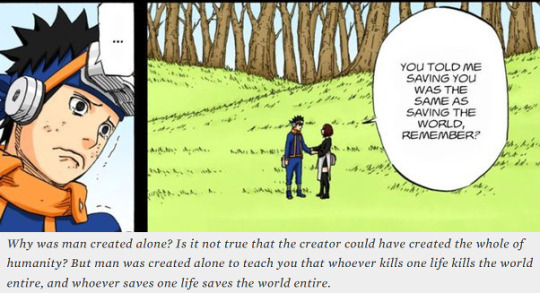


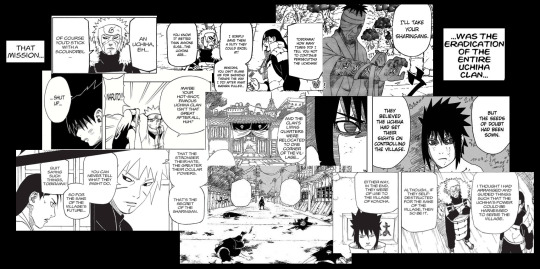
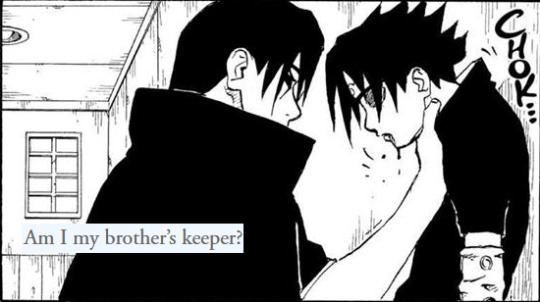
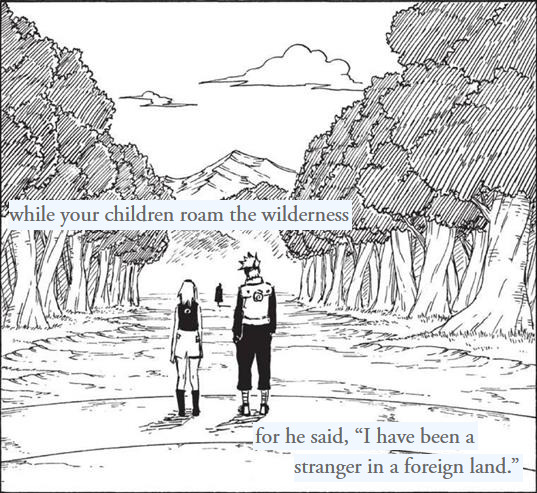
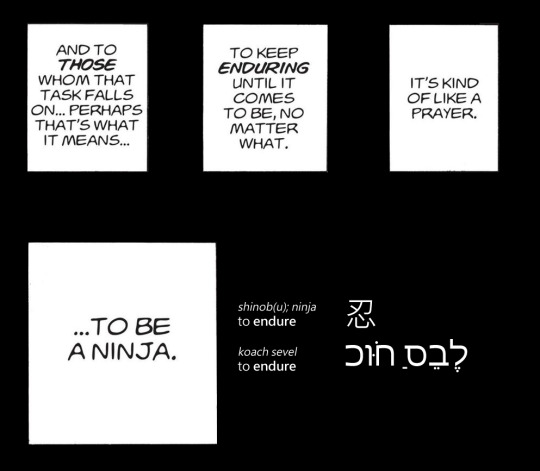
ch. 223 + aish tamid/bar and bat mitzvah // ch. 391 + mekhilta (bahodesh 9) // ch. 146, 234 + thou shalt not murder // ch. 653 + talmud // ch. 553 + devarim 16:20 // shippuden ep. 140/ch. 399 + bereavement in judaism, tachrichim // various // ch. 147 + bereshit 4:9 // ch. 699 + bamidbar 14:19, shemot 2:22 // ch. 699 + to endure
#naruto#uchiha#meta#judaism#jewish#its finally here. the jewchihas post youve all been waiting for#jew time#sasuke#itachi#obito#izuna#fugaku#just realized none of the madara stuff made the cut. oh well#uchihas are jewish. thanks
205 notes
·
View notes
Text
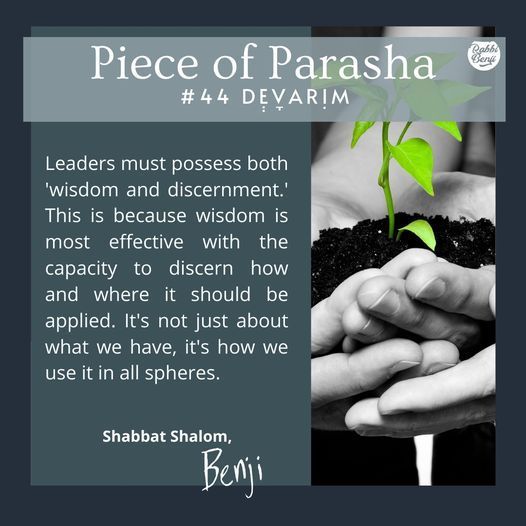
Rabbi Benji
What’s the difference between ‘wisdom’ and 'discernment’? Find out in this week's #PieceofParasha on Devarim. For some further thoughts of this week’s parasha, check out: Here
9 notes
·
View notes
Photo
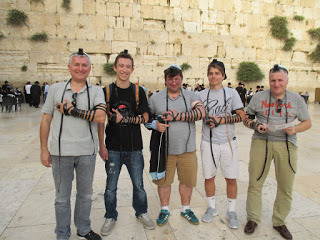
by Reb Gutman Locks
This week’s Torah portion, Devarim, has one of the most important teachings in the entire Torah. It is not just an important law, or something that happened to us at that time. It is so important because it defines what we actually are. This teaching is not stated just one time but is taught there over and over.
Moshe our Teacher is about to leave the world. The Jewish people are standing before him prepared to enter the Holy Land that Hashem promised to give to us way back in the days of our forefathers. But Moshe wasn’t just saying goodbye. He was reviewing all that we did from the time we left Egypt until that day when at last we were ready to enter the Holy Land.
He didn’t sound so happy about us either: “Because you complained, and you rebelled, and you refused, (and on and on), we had to wander in the wilderness these forty years. Because you murmured in your tents, and…” on and on he reminded us of all those negative things we did.
But wait a minute. Who was Moshe talking to? The Jews standing there before Moshe being reprimanded were either very small children, or not even in the world yet when those negative things happened! So how could Moshe blame us for what they did?
The same way I just wrote that he blamed us when you and I weren’t even in the world back then,… or were we?
The point is, the Jewish people are one. We are, and have always been judged as a single unit, both by Hashem, and certainly by our most hateful enemies. Whatever any Jew in the world did then, or does today, you and I receive some of the credit or some of the blame. It has always been this way.
And this is perhaps the best reason for us to be concerned with each other’s well-being. This is why Jews must reach out to help each other physically and even more so, spiritually. It not only helps them; it helps all of us.
16 notes
·
View notes
Text
Do not assume that the only time we are close to G-d is while we are engaged in Torah study, prayer, and the performance of a mitzvah, and that we have turned away from G-d while engaged in earthly endeavours such as eating, drinking, and other needs.
This is not the case, for we are instructed, "Know G-d in all your ways" (Misle 3:6). We can connect to G-d through every endeavour.
Rabbi Menachem Nachum Twersky, Me'or Einayim, Likutim, Devarim 13:5
#jumblr#chasidut#chassidut#chassidus#im doing a kabbalah course with my shul and this quote really spoke to me#i mean its one of the main things that makes judaism speak to me over xtianity#that we live in this world and bring divinity to it rather than just hanging out waiting for to go to the holier place#judaism
16 notes
·
View notes
Text
5ta aliya-Parasha Devarim(español)

5ta sección: Devarim(Deuteronomio) 2:2-30
2Dios me dijo:
3“Han viajado alrededor de estas tierras altas lo suficiente. Vuélvanse [y diríjanse hacia el] norte.
4Da al pueblo las siguientes instrucciones: ”Están pasando junto a las fronteras de sus hermanos, los descendientes de Esav, que viven en Seír. Aunque ellos les temen, tengan mucho cuidado
5en no provocarlos. No les daré siquiera un pie de la tierra de ellos, puesto que he dado el monte Seír como herencia de Esav.
6”Pueden adquirir de ellos con dinero alimento para comer y agua para beber.
7Dios tu Señor te bendice en todo lo que haces. Él conoce tu camino en este gran desierto y durante estos cuarenta años Dios tu Señor ha estado contigo, de modo que no te faltó nada”.
8Pasamos junto a nuestros hermanos, los descendientes de Esav, que vivían en Seír, y nos dirigimos a través de la Aravá desde Elat y Etzíon Guéver. Nos volvimos y pasamos a través del desierto de Moav.
9Dios me dijo: “No ataques Moav y no los provoques para pelear. No te daré la tierra de ellos como herencia, puesto que ya he dado Ar a los descendientes de Lot como su herencia.
10”Los emim vivieron allí originalmente, una raza poderosa y numerosa, tan alta como gigantes.
11Como gigantes, podrían ser considerados refaím, pero los moabitas los llamaron emim.
12Era como Seír, donde los horitas vivían originalmente, pero fueron expulsados por los descendientes de Esav, que los aniquilaron y vivieron allí en su lugar. Esto es también lo que Israel ha de hacer en la tierra hereditaria que Dios les dio.
13”¡Ahora empiecen a moverse y crucen el arroyo Zered!”. De este modo, cruzamos el arroyo Zered.
14Desde el tiempo en que salimos de Kadesh Barnea hasta que cruzamos el arroyo Zered, 38 años habían transcurrido, durante los cuales la generación de guerreros se hubo extinguido del campamento, como Dios había jurado.
15La mano de Dios había estado dirigida específicamente contra ellos, aplastándolos de modo que estuvieran terminados.
16Fue en este tiempo que todos los hombres de guerra entre el pueblo terminaron de morir.
17Entonces Dios me habló, diciendo:
18“Ahora estás a punto de pasar a través de Ar, que es territorio moabita.
19Estarás viniendo cerca de los amonitas, pero no los ataques ni los provoques. No te dejaré ocupar la tierra de los amonitas, puesto que la he dado como herencia a los descendientes de Lot.
20”Esto podría también considerarse el territorio de los refaím, puesto que los refaím vivieron allí originalmente. Los amonitas se refieren a ellos como zamzumim.
21Los [refaím] eran una raza poderosa y numerosa, tan altos como los gigantes, pero Dios los aniquiló delante [de los amonitas], que los expulsaron y vivieron [allí] en su lugar.
22”Esto fue lo mismo que Dios había hecho para los descendientes de Esav, que vivían en Seír, cuando aniquiló a los horitas delante de ellos, permitiendo [a los descendientes de Esav] que los expulsaran y vivieran en su lugar hasta el día de hoy.
23Esto fue también así de los avim, que vivían de Jatzerim a Aza; los caftorim vinieron de Caftor y los derrotaron, ocupando sus territorios.
24”Ahora partan y crucen al arroyo Arnón. ¡Mira! He entregado a Sijón, el rey amorreo de Jeshbón, y su tierra, en tus manos. ¡Inicia la ocupación! ¡Provócalo para que entre en guerra!.
25Hoy estoy empezando a hacer que todas las naciones bajo los cielos te teman y tengan pavor de ti. Quienquiera que oiga de tu reputación temblará y estará ansioso por tu causa”.
26Envié emisarios desde el desierto de Kdemot a Sijón rey de Jeshbón con un mensaje pacífico, diciendo:
27“Deseamos pasar a través de tu tierra. Viajaremos a lo largo del camino principal, sin volvernos ni a la derecha ni a la izquierda.
28Compraremos el alimento que comamos al contado, y pagaremos por el agua para beber que nos des. Sólo deseamos pasar a través a pie,
29tal como pasamos junto al territorio de Esav en Seír y Moav en Ar. Sólo deseamos cruzar el Jordán hacia la tierra que Dios nuestro Señor nos da”.
30La única tierra a la que no nos aproximamos fue el territorio amonita, que incluía la región en torno al Iabok, las ciudades de las tierras altas y todas las otras [regiones] que Dios nuestro Señor nos había ordenado [evitar].
#parasha ha shavua#parasha de la semana#torah portion#porción biblica#parasha devarim#jumblr#biblia#simchat torah#torah#post en español#estudiando la biblia#childrens of the lord#amisraeljai
2 notes
·
View notes
Text

Unicorns and goats and elephants, oh my!
This elephant, in the center of a star of David, appears at the beginning of the Book of Deuteronomy (Devarim) in a highly illuminated copy of the Pentateuch made somewhere in the Holy Roman Empire between about 1300 and 1325.
Some scholars have argued that the artists of this manuscript derived the elephant symbol largely from the influence of Christian artists and writers (who in turn derived much of the symbolism from Late Antique and ancient writers). There are dragons higher up on the page, and the (satanic) dragon fighting the (steadfast and loving) elephant was a major theme in Christian bestiaries, patristics, and other works. However, in "The Elephant and the Law", Marc Michael Epstein argues that there were subtler meanings and that elephants had long-standing symbolism in Jewish art, too. (He points out that elephants do appear in a mosaic on a floor of a synagogue from about 530 AD).
Today, this manuscript is known as the "Duke of Sussex Pentateuch" because it was once owned by Augustus, Duke of Sussex, one of the sons of King George III and Queen Charlotte (of Bridgerton fame).
Date: 1300-1325
Origin: Holy Roman Empire
Now British Library, Add MS 15282, f. 238r

#elephant#elephants#medieval elephants#hebrew manuscript#pentateuch#dragon#unicorn#illuminated manuscript#book history#fourtheenth century
19 notes
·
View notes